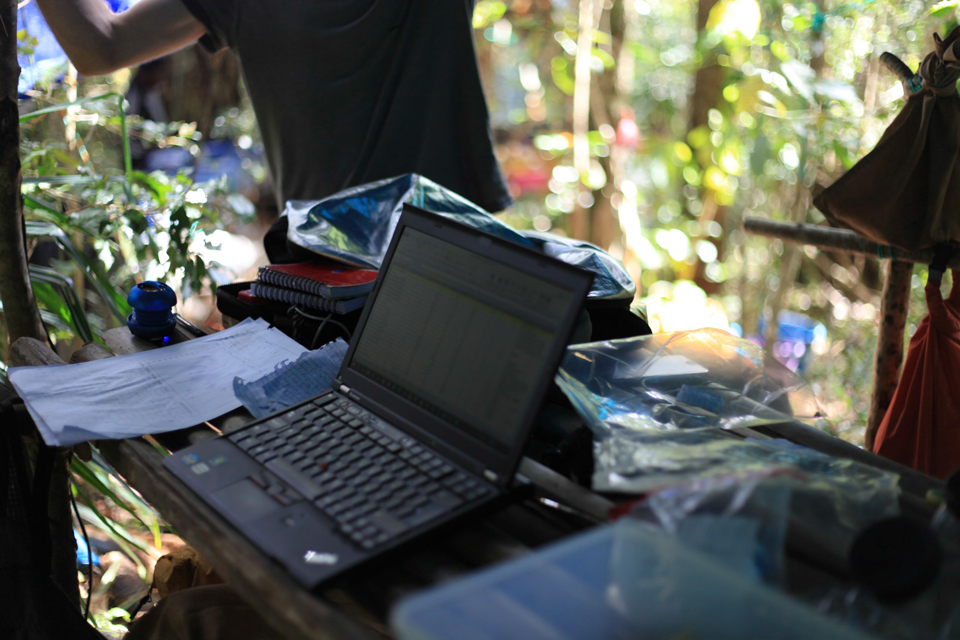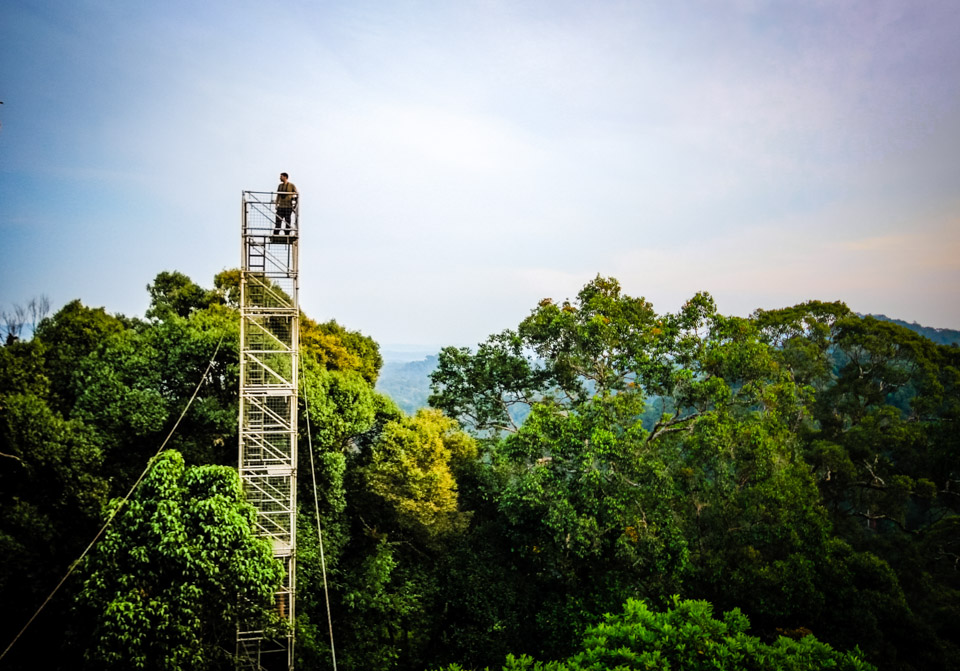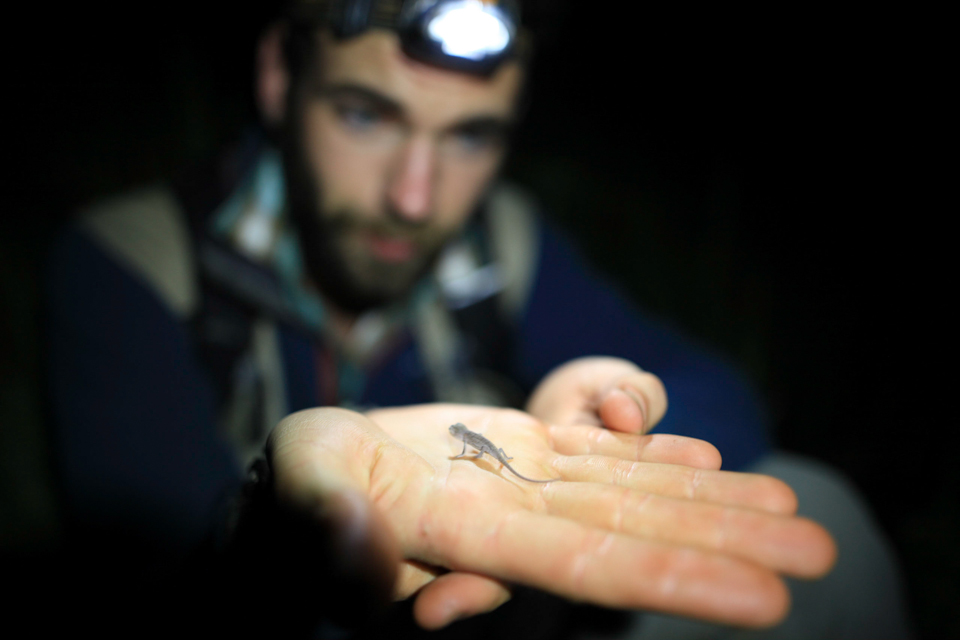Do you Need a Masters or PhD to Work in Conservation?
I was invited to speak at a couple of conservation themed careers events this week in London. They’re good fun for two reasons. Firstly, it’s an opportunity to meet tons of interesting folks like the handsome TV presenter Hayden Turner, and Mr Conservation Careers himself, Dr Nick Askew.
Secondly, and unsurprisingly, the theme is all about doing work that matters to you and making a difference. I’ve never heard anyone ask about pay, perks or pensions. Conservation is a passion and that’s what I love about it – but that doesn’t mean there aren’t a lot of worthwhile questions that need answering.
The Most Frequently Asked Question from Aspiring Conservationists…
By far the one topic that comes up every time is whether you need a Masters or PhD to work in conservation. Is science and academia the only route in? What if you’ve had a different career and want to move into the area – do you need to go back to university and study?
The obvious answer is no. There are as many routes into conservation as there are conservationists – so whatever your background, don’t let that define what you are capable of in the future.
That being said, I happen to think a route well worth considering, and here’s why:

1. Conservation is a Weird Career Path
Compared to the well mapped out career ladders and ‘Grad Schemes’ in banking, recruitment or sales I’m afraid to say in conservation, you’re very much on your own.
Yes there’s a few courses that provide a step up like the Conservation Leadership and the EDGE Fellowship Programmes, but they are fairly unusual and focus their limited resources quite rightly on conservationists from developing countries. Maybe one day the environmental sector will command as much attention as PwC, Deloitte or Google. Maybe Conservation Careers will be as big as Milkround, but alas we’re not quite there yet.
By contrast, continuing down the Masters/PhD route has some advantages, not least to help you develop experience and work out more specifically what you want to do.
2. Gaining Conservation Experience through a Masters or PhD
Conservation is hard. We can put astronauts in space and take photographs of Pluto, but we can’t stop biodiversity loss. Congratulations on choosing a ‘challenging’ career path!
For that reason, I think spending a few more years learning is hugely valuable. Yes, all conservation jobs involve learning, but the academic environment immerses you right at the leading edge.
I firmly believe that all good conservation work should be science based. If we plan to spend money on an intervention, restoration or management scheme, then an essential part of that is assessing whether it worked. What could be improved? What is the long term outcome? How can we do better next time?
We’re all deeply passionate about conservation. It elicits strong opinions which can often cloud our judgement or be influenced by our emotions. Sometimes, we really get it wrong and barely realise!
So passion and intuition both have their place, but should always be balanced by impartial science. The training received in a good Masters or PhD should provide those skills in abundance.

3. Forging Your Own Path in Conservation is Exciting
A great way to be sought after is to be an expert. Now, becoming an expert on conservation, the environment, or something like climate change is hard and takes years. But becoming an expert on a specific topic is much easier and quicker.
I encourage people to embark on PhDs and Masters because you never know where you’ll end up. In my department for example, there are people working on tree diseases, naked mole rats, sea turtles, social insects, genomics, aquatic ecology, phylogenetics – the list goes on…
Yet whatever flavour you chose to study, you will likely become an expert in your niche – and experts are what conservation needs. All you need to do is find an area that you’re passionate about and hey presto!
4. The Caveat: Make Sure You Get Your Hands Dirty
The risk of heading down the mysterious corridors of academia are twofold.
Firstly, I’ve seen many inspiring young conservationists become burnt out by research. Studying is tough, regardless of the subject. Don’t let exams, tests or assignments squeeze the passion from your veins. Remember why you got into it in the first place, and what you want to achieve.
Secondly, and crucially, sometimes if you spend too long in front of a computer you can forget what you are really working towards. Theory is important, but time is short and the environment is big – sometimes we need to stop thinking and try stuff. It’s easy to forget that last part when writing papers.

5. Money, Money, Money (and how much you need to get into conservation)
Lastly, but certainly not least, is money – a topic in itself. Masters are expensive and so committing is a big choice. Unfortunately, I don’t have a magic solution to that, if I did then this article would be infinitely more popular. Though it’s worth noting that postgraduate loans for Masters have recently become available in the UK, and some universities offer very good scholarships.
PhD’s on the other hand are normally paid (and don’t pay tax). It’s not a lot, but it’s more than enough to get by (or do the odd trip) – and I live in London.
Remember: ‘It’s only work if you’d rather be doing something else’.
In a Nutshell: Masters, PhDs and Conservation
No, you don’t need a Masters or a PhD – there’s hundreds of people that can testify to that. But from personal experience they can be great fun, you learn a lot, and it can’t hurt with a future career in conservation – so consider it.
If you want to find out more, there’s some useful links below, or have your say in the comments.
Where To Find Conservation Masters and PhDs
Useful Articles:
Advice for Doing Work That Matters to You
How to Get a Job in Conservation (and love your work)
Five tips for getting a career in conservation (via RSPB)
Advice for getting your dream job in conservation science
Masters and PhDs:
Conservation Biology – Study Abroad
Conservation Biology – Grad Schools
If you have any other useful links, drop me a message.
P.S. Here’s what Twitter thinks:
I also put the question out to twitter, which I’ve generally found to be full of useful wisdom – here’s what other folks think…
@James_Borrell both will get you a job. Start with master. It’s more economically efficient and good to see if you like it before you Ph.D.
— Ty Tuff (@ty_tuff) February 13, 2016
@James_Borrell depends if your going to get your hands dirty or not every day, actually doing it or primarily thinking about it. :0)
— WillowHedgehogRescue (@WillowsHedgehog) February 13, 2016
@James_Borrell I would say Master’s for sure. A PhD can either help or hinder depending on the job. There are ways to gain exp during a PhD.
— Sheila Colla (@SheilaColla) February 13, 2016
@James_Borrell I think it helps to separate from degrees. Is practical experience more essential for Reserve Wardens/Managers?
— tom clare (@tomclare922) February 13, 2016
No. For most of the jobs in conservation I have applied for, you would have had to have had the exact same job before….@James_Borrell
— Sean McCann (@Ibycter) February 13, 2016
@James_Borrell No. It does help when +++ applicants. But so does HBSc + Diploma. So does HBSc + experience. Experience includes geeking.
— Ed Morris (@Edrmorris) February 13, 2016
@James_Borrell Depends hugely on your role. Personal experience is great but better if bolstered by shared wisdom. Ability to develop and..
— NFBR (@_NFBR) February 13, 2016
@James_Borrell conservation needs multidisciplinary input, & a range of skills, practical & academic. All levels of qualification necessary.
— linden hawthorne (@Haggewoods) February 13, 2016
Depends what you mean by “work in conservation”. For research, yes. For implementation, prob not. https://t.co/2TdKRf6N02
— Alex Bond (@thelabandfield) February 13, 2016


